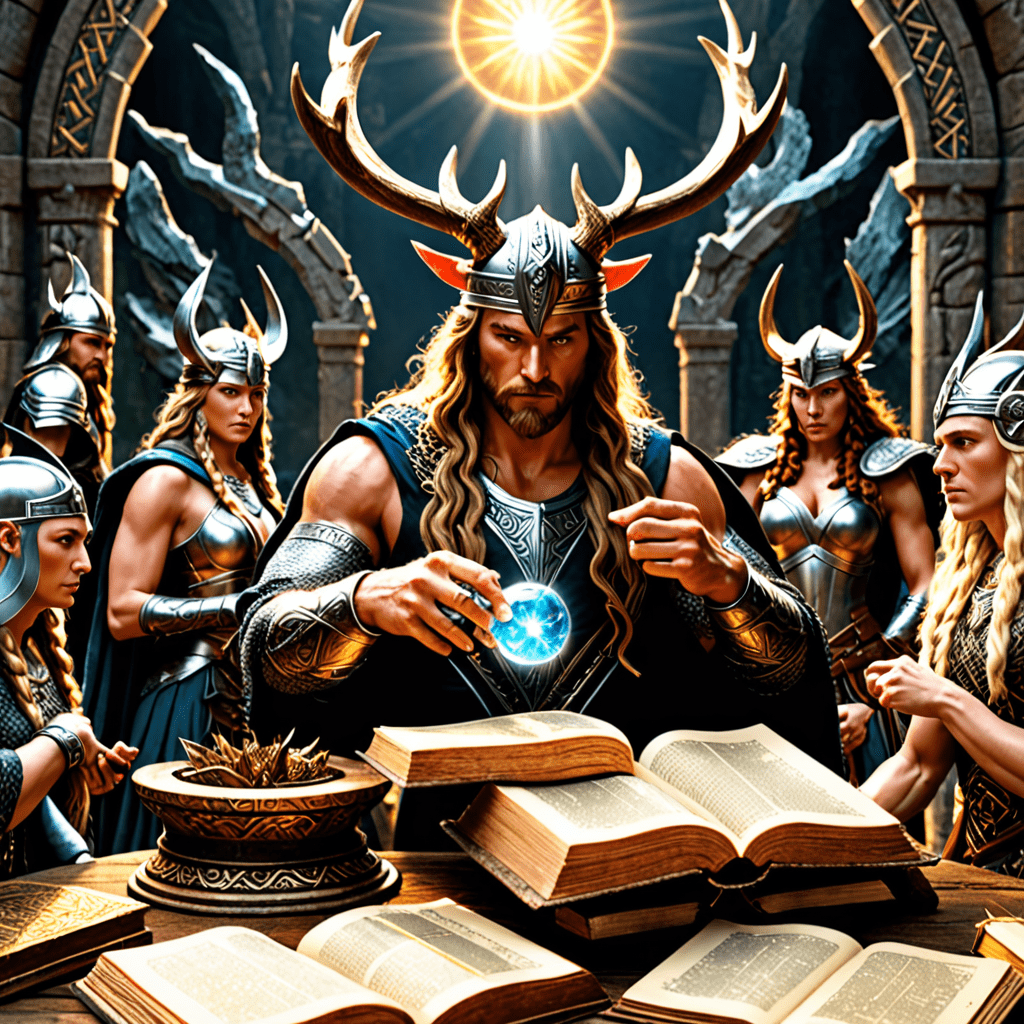The Power of Connection: How Myths Portray Love Across Cultures
I. Introduction
Love is a multifaceted concept that varies significantly across different cultures. Each society has its own understanding and expression of love, shaped by historical, social, and spiritual influences. Myths, as narratives that encapsulate cultural values and beliefs, play a crucial role in shaping how love is perceived and experienced within those cultures.
This article aims to explore the portrayal of love through myths across various cultures, examining how these narratives reflect societal values and contribute to cultural identity. We will delve into ancient civilizations, Eastern mythologies, indigenous stories, and contemporary influences to understand the enduring power of love as depicted through myths.
II. The Role of Myths in Cultural Identity
Myths serve as cultural narratives that convey the beliefs, values, and identity of a society. They are stories passed down through generations, often embodying the collective wisdom and experiences of a community.
- Reflection of Values: Myths reflect what a culture holds dear about love—be it romantic, familial, or communal.
- Beliefs about Relationships: They often illustrate the expectations and norms surrounding relationships, shaping individuals’ understanding of love.
For instance, the love stories found in various cultures often highlight the virtues of sacrifice, loyalty, and the trials of love, which resonate with the community’s values. We will explore specific case studies to illustrate these points.
III. Love Myths in Ancient Civilizations
A. Greek mythology and the concept of romantic love
Greek mythology is rich with stories that explore the depths of romantic love, often intertwining it with themes of destiny and the divine.
- Stories of Eros and Psyche: This myth epitomizes the trials of love, where Psyche’s journey to reunite with Eros emphasizes the idea that true love requires overcoming obstacles.
- The influence of love on fate and destiny: Many Greek myths illustrate how love can alter one’s fate, suggesting that love is both a powerful force and a guiding principle in life.
B. Egyptian myths and the portrayal of divine love
In Egyptian mythology, love often takes on a divine quality, with deities embodying the ideal of eternal love.
- Osiris and Isis as archetypes of eternal love: Their story represents the bond that transcends death, emphasizing loyalty and devotion.
- The role of love in the afterlife: Love was seen as a crucial element in the journey to the afterlife, showcasing its significance beyond earthly existence.
IV. Love and Connection in Eastern Mythologies
A. The significance of love in Hindu epics
Hindu mythology is replete with stories that illustrate the spiritual dimensions of love.
- The love story of Radha and Krishna: This narrative emphasizes love as a divine connection that transcends physical boundaries, highlighting devotion and spiritual awakening.
- Love as a path to spiritual enlightenment: Many Hindu texts portray love as a means to achieve higher consciousness and unity with the divine.
B. Chinese myths and the balance of love and duty
Chinese mythology often emphasizes the balance between personal desires and social responsibilities.
- The tale of Liang Shanbo and Zhu Yingtai (Butterfly Lovers): This tragic romance underscores the conflict between love and societal expectations, ultimately portraying love as a force that transcends life and death.
- The concept of “Qing” (情) in relationships: “Qing” embodies the emotions and connections that bind individuals, highlighting the importance of love in fulfilling one’s duty to family and society.
V. Indigenous Myths and the Community Bonds of Love
A. The role of love in Native American myths
In many Native American cultures, love is viewed as a communal value that fosters harmony and connection.
- Love as a communal value: Myths often emphasize the importance of love for family and community, illustrating how individual relationships contribute to societal well-being.
- Examples of love stories that emphasize harmony with nature: Many narratives highlight the interconnectedness of love and nature, teaching respect for the environment as an expression of love.
B. African folklore and the interconnectedness of love
African folklore often conveys lessons about love that emphasize community strength and interconnectedness.
- Anansi stories and lessons on love and relationships: These tales often illustrate the complexities of relationships and the importance of love in maintaining social cohesion.
- Love as a foundation for community strength: Myths emphasize that love is essential for building strong communities, where collective well-being is prioritized.
VI. Love Across Cultures: A Comparative Analysis
Despite the diverse representations of love across cultures, certain themes remain consistent.
- Similarities in themes of love: Across cultures, love is often portrayed as a transformative force that brings personal and societal change.
- Unique elements that distinguish cultural representations: Each culture adds its own nuances, whether through the portrayal of love as spiritual, communal, or romantic.
- The evolution of love myths over time: As societies change, so do their myths, reflecting new values and beliefs about love.
VII. The Impact of Modernization on Love Myths
Globalization and modernization have significantly influenced traditional narratives about love.
- How globalization is reshaping traditional love narratives: The exchange of ideas and cultures has led to a blending of love myths, creating new interpretations that resonate with contemporary audiences.
- The blending of mythologies in contemporary storytelling: Modern media often draws from various cultural myths to create rich narratives that reflect a global understanding of love.
- The ongoing relevance of love myths: Despite changes, the core themes of love, connection, and community remain vital, continuing to shape our understanding of relationships today.
VIII. Conclusion
Myths about love across cultures provide profound insights into the human experience. They capture the essence of love’s power to connect, transform, and shape our identities. As we navigate an increasingly globalized world, these narratives remind us of the enduring nature of love, transcending boundaries and resonating deeply within us all.




